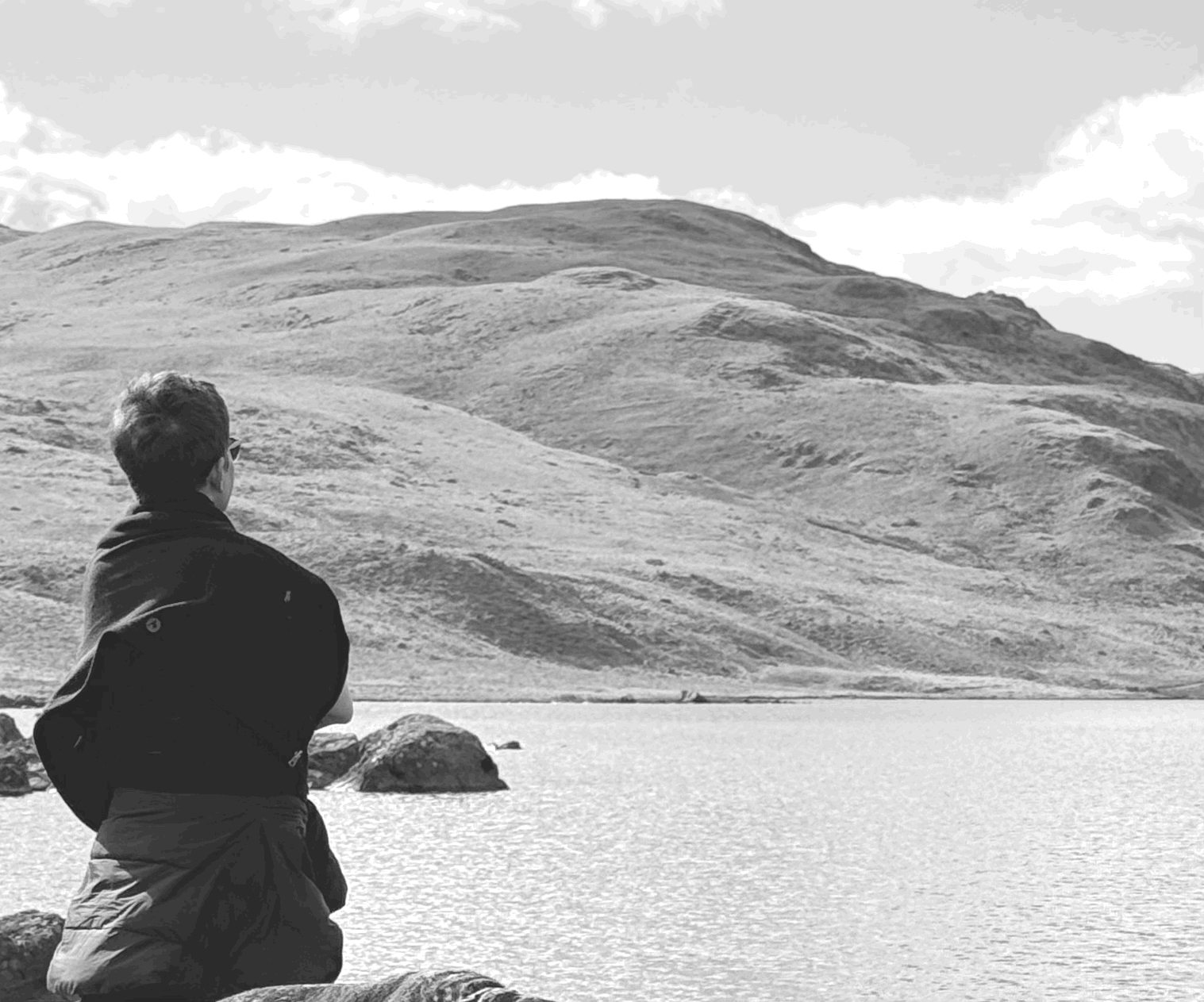
“The only way out is in”?
Seen from afar, Earth looks peaceful in her blueness. When we look closer, we see that one species, ours, is responsible for so much harm to itself and to the more-than-human world.
Might caring for what holds us—our bodies—help us care more deeply for the Earth that holds us all?
Photo credit to NASA/Bill Anders
https://www.nasa.gov/history/alsj/
Public Domain: https://commons.wikimedia.org/w/index.php?curid=306267

Positionality lives in the body
In this post I offer a short invitation to explore how privilege might show up in your body.
You might want to carve out just 5–10 minutes. You are at choice and can engage as much or as little as you want. You can stop any time.
This kind of practice is about inquiry and being curious. It might not give you an answer, but it can help you be present, and stay with the questions.

‘Somatics’ is not a woo-woo
Somatics invites us to remember the intuitive language, our birthright in which we as a species were once fluent — embracing our bodies as sites of perception, meaning and memory.
It is a powerful tool to notice, begin to understand and act on those messages, nurturing an awareness of felt sensations in the body. Those sensations include physical sensations of touch, the heart beating, blood pulsing in our veins, the weight of our bones, vibrations, increasing or decreasing tension in our neck, head or shoulders… to name just a few.

Do you know about Bacon’s Rebellion?
Bacon’s Rebellion (1676) was a key moment in the creation of white racial identity—a moment that laid the groundwork for racism as a system.
Image: Howard Pyle, 'The Burning of Jamestown' (Public Domain, via Wikimedia Commons)

Have you ever considered what ‘being professional’ means to you?
I’ve noticed that when I feel the expectation to be ‘professional,’ it often translates into detachment—from my emotions, my body, my own experience. In work and school environments, to fit the mould of ‘professional’ we are often socially conditioned to suppress emotions like anger, joy or grief. For example, institutions often expect that after losing a loved one, you’ll be ready to return to work within an extremely short period (in the UK, as little as three to five days of bereavement leave; in the US, often none at all). You’re expected to act ‘professional’ while your body and mind are grieving, you might feel disoriented and lost.

Trauma-informed facilitation
Several years ago, I trained as a teacher in trauma-informed yoga and somatics. Alongside learning to encourage somatic awareness through yoga, this training deepened my understanding of how to hold space for individuals who may have experienced trauma. This ongoing practice of trauma-informed yoga facilitation has also shaped me into a trauma-informed facilitator in other contexts, including facilitating conversations about race equity and leading anti-racism and anti-oppression workshops. The principles of trauma-informed facilitation are not only invaluable but also highly transferable to any form of facilitation, training, or teaching. In this blog, I share a few practical suggestions to consider integrating into your work.

Neanderthals, Racism, and the Patterns of 'Othering’
The way Neanderthals have been portrayed in modern science and popular culture is also a striking example of how racism works. Initially they were depicted as ‘brutes’, inferior and less ‘worthy’ version of humans. This served to justify discrimination of Indigenous groups that were deemed ‘similar’ to them, such as Aboriginal Australians. Neanderthals began to receive more favourable scientific attention when DNA studies revealed similarities between them and people of European heritage. Scientific interest then shifted toward finding proof that they were, in fact, just ‘like us’ - meaning, the inhabitants of the Global North.

Challenging the Comfortable Distance: How Racism Operates Through Us All
It might be tempting to view the violent racism that has swept through the UK in recent weeks as the only way racism manifests. It’s easy to think that "those racists" are people you don't identify with—someone who is "not like me." While there's likely truth in that, this mindset can be problematic.

Beyond Silence: Engaging Minds and Bodies in Race Conversations
To truly 'see' how racism has shaped our lives as white folks means confronting some painful truths. These difficult feelings might involve recognising that you've been able to remain ignorant of racism for a large part of your life or acknowledging your complicity despite good intentions. These feelings can be very hard to 'feel' and process, and there is a huge benefit in doing this work with others.

Somatics and racial justice
To try to leave the body out of the picture when doing the work on one’s own internalised racism and oppression in the wider society means missing out a key piece of the puzzle that can help us process, compost or integrate some habits. That’s why we cannot simply talk ourselves out of racism by intellectualising or suppressing emotions and sensations - we need to reconnect with the language of the body.
